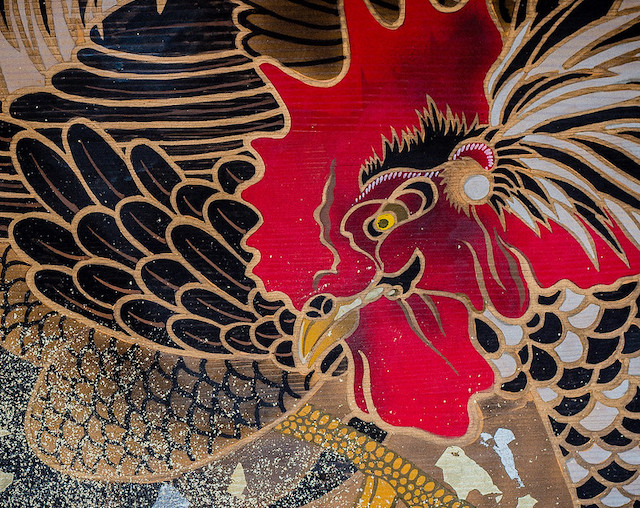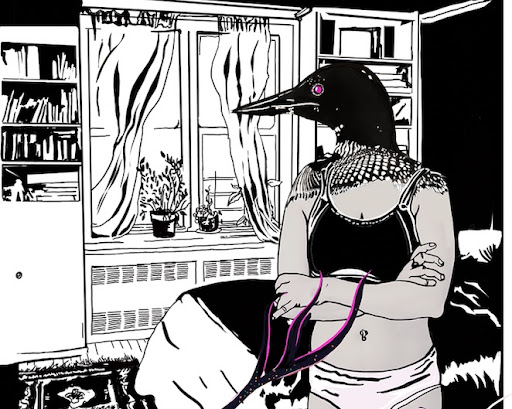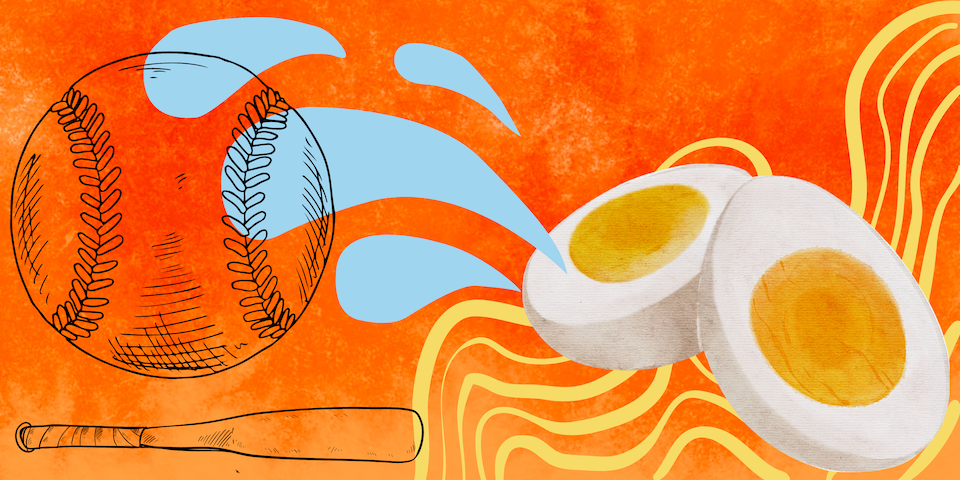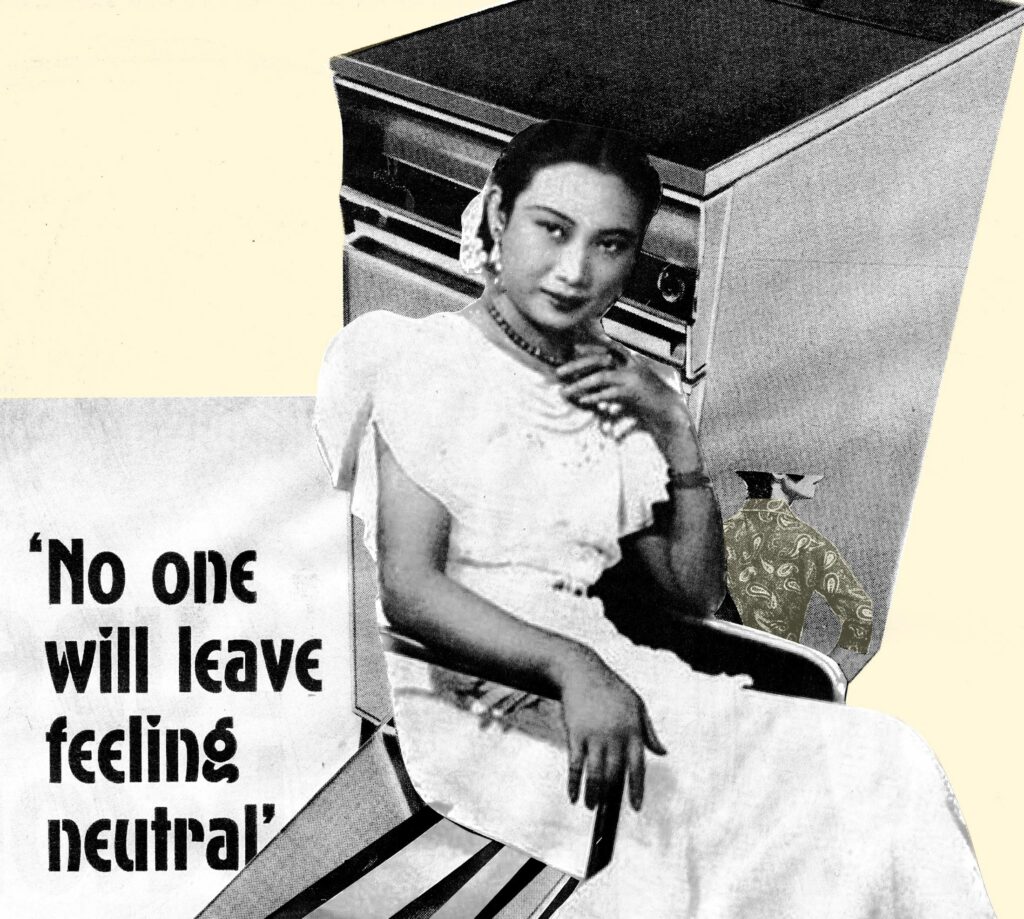And though I knew it was someone’s son, I unburied the rooster in the dark and kick-started a fire and roasted it on a spit, my fingers lamping with grease.

September 25, 2020
When Sanyi was twenty, she married a rooster. It spurred her in the face on their wedding night, and that’s why she has a scar below her left eye, pearled like a glob of spittle. In winter, the scar on Sanyi’s cheek puckers out like a nipple. I suckled on her face when I was a baby, and sometimes I still taste the citrus of her scar. After I was weaned off nipples entirely, Sanyi explained why she married poultry: when she was ten, the neighbor’s son was stabbed to death for his gambling debts, and years later he returned in his mother’s dreams, quilled with knives like a puffer fish. He said he wanted to get married, or else the family line was forever severed and he’d starve in the afterlife, etc., etc., and so Sanyi’s mother betrothed her to his ghost. For the wedding, a white cock was used as the human groom, and when I first heard this, I assumed it was because cocks were the closest species to men. Because I didn’t see a live man until the age of twelve, I believed they all had wattles and wingspans wide as the weather. I was disappointed to learn that men were neither vividly feathered nor vocal, and that they couldn’t be slaughtered for meat. Sanyi always says she was lucky: a dead husband is easier than a live one. You don’t have to cook or be clean, you just have to scatter seed and give him hens to hump.
Sanyi is the one who got me a job at the chicken-processing plant, where we hang bald hens on hooks and sail them through a machine with a robotic arm that debones them in four seconds. When I first started working there, we got a manual about how the de-boner is an intelligent machine that can discern bone from flesh more quickly and accurately than an actual human arm, though sometimes – the manual warns – when the hen is abnormally shaped, the robot-arm splinters the bones inside it and embeds the meat with calcium shrapnel that will cause customers to internally bleed and sue us for everything. Consequently, it is our job to massage the meat for bone-shrapnel, and even though I wear gloves, my hands still smell of suppressed blood.
I meet her one day outside the factory, in the parking lot where I sit on the hood of my car with my hands splayed open, hoping wind will smack the scent off them. She sucks her cigarette sore, and the way her elbow hinges at a perfect 90-degree angle reminds me of the robot arm, the two seconds it takes to yank the bone from a breast. Her name is Cindy, a name that makes me wince because it’s so Chinese, so inevitable, and she’s wearing her hairnet even though we’re outside, as if it’s a uniform that might earn us a salute on the sidewalk or priority boarding, and that’s the pride I love in her, that belief in our importance, even when a robot arm can command a blade better than any of my aunts, even though meat doesn’t matter here unless it’s boneless, shapeless, unwrapped from its spine. That night, in my car, we jimmy our tongues inside each other’s mouths, trying to pry tooth from gum, thigh from bone, thirst from throat. She shoulders me into the seat and I steer the bones of her, the mast of her back, her hipbones so wide they nudge night aside, her knuckles large and slick as the stone pits of fruit, so sweet when they slip into me.
When it’s morning, we sit reclined in my car. I laugh at her hairnet, which now swings wet from the rearview mirror, the sun trapped and squirming inside it. Cindy’s hands, lank as the dead hens we hook down a line, flop down in my lap. I tuck mine away, remembering the smell. Because I don’t want to go back to the factory, I tell her the story about Sanyi and her marriage to the rooster, and Cindy tells me about her marriage to two men, the first who died on the factory floor, freak heart attack, and the second who she divorced, who had a penis the width of asparagus. She says: with my man-hands, I thought I’d snap the sprig of him. I tell her I love the landscape of her knuckles, mountainous when she makes a fist. We talk until another night knits over us, and she asks me what happened to the rooster in my story. I don’t know, I tell her, and it’s better not to have sympathy for the chickens: imagine they’re born bald and boneless and we are merely returning them to the way they lived inside an egg, swimming and soft, candled in our hands. Imagine we are preparing them for their next lives.
Cindy repeats it after me, and the next time I see Sanyi, I trace her scar with my finger and ease oil over the hump of it, diluting the ache that still lives inside. It throbs beneath my thumb, softening its shell: the truth is, she reveals to me years later, the truth is. After the rooster spurred me in the face, I snapped its neck. Like instinct. I buried it that night, tore out its breast feathers and scattered them in the yard so that in the morning it’d look like a stray dog snatched it. But then, I kept thinking, how could I waste all that meat? I couldn’t sleep. And though I knew it was someone’s son, I unburied the rooster in the dark and kick-started a fire and roasted it on a spit, my fingers lamping with grease. I ate the bones too, sucking out the marrow, gnawing soft the knuckles. There were feathers flossing my teeth, red and green, blood sunning on my tongue. Call it mourning, call it hunger. What a day my mouth made.



